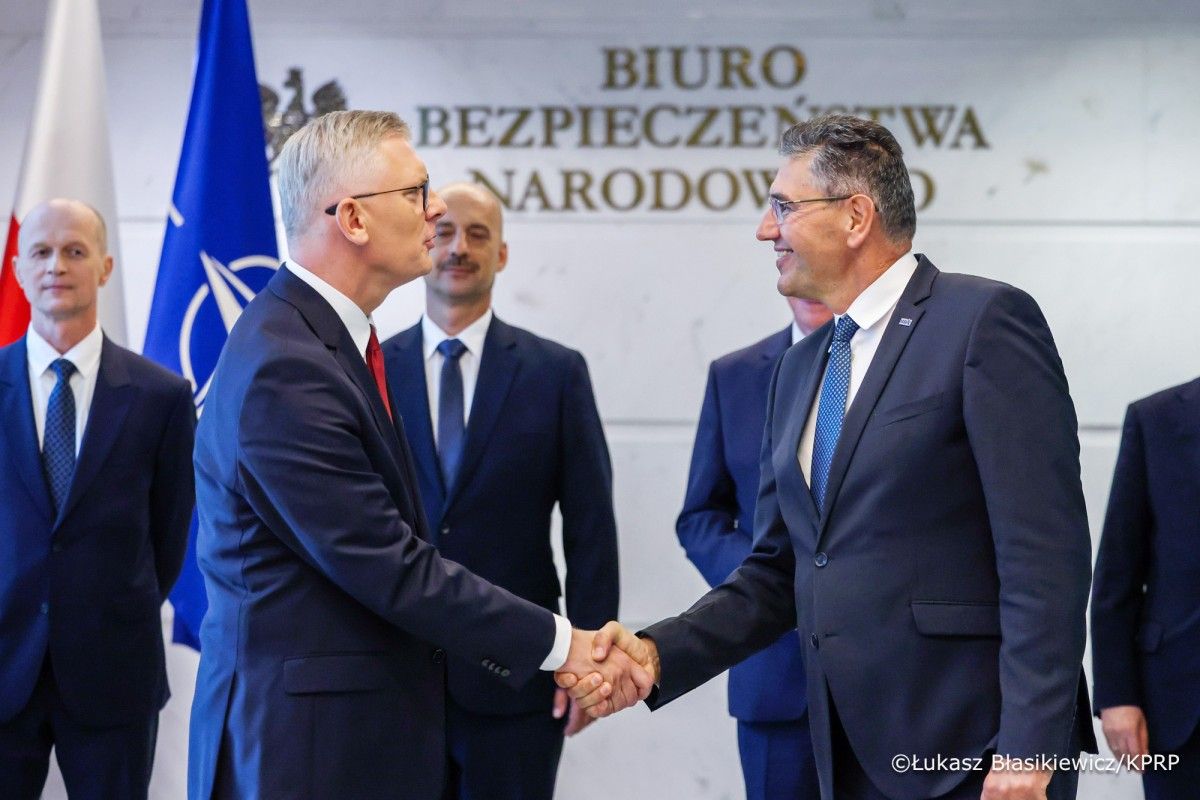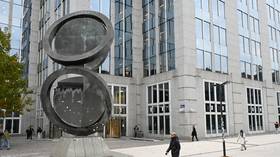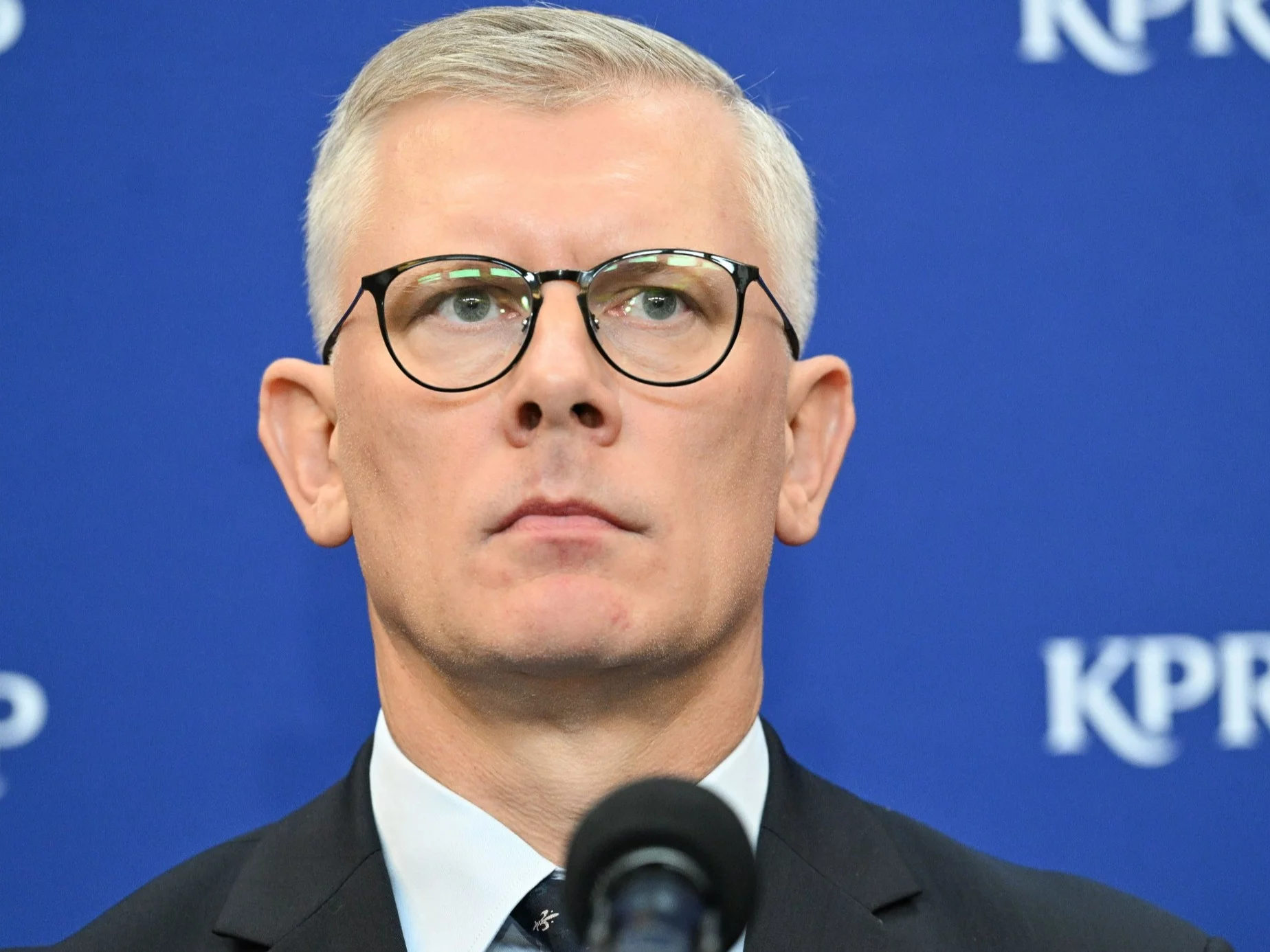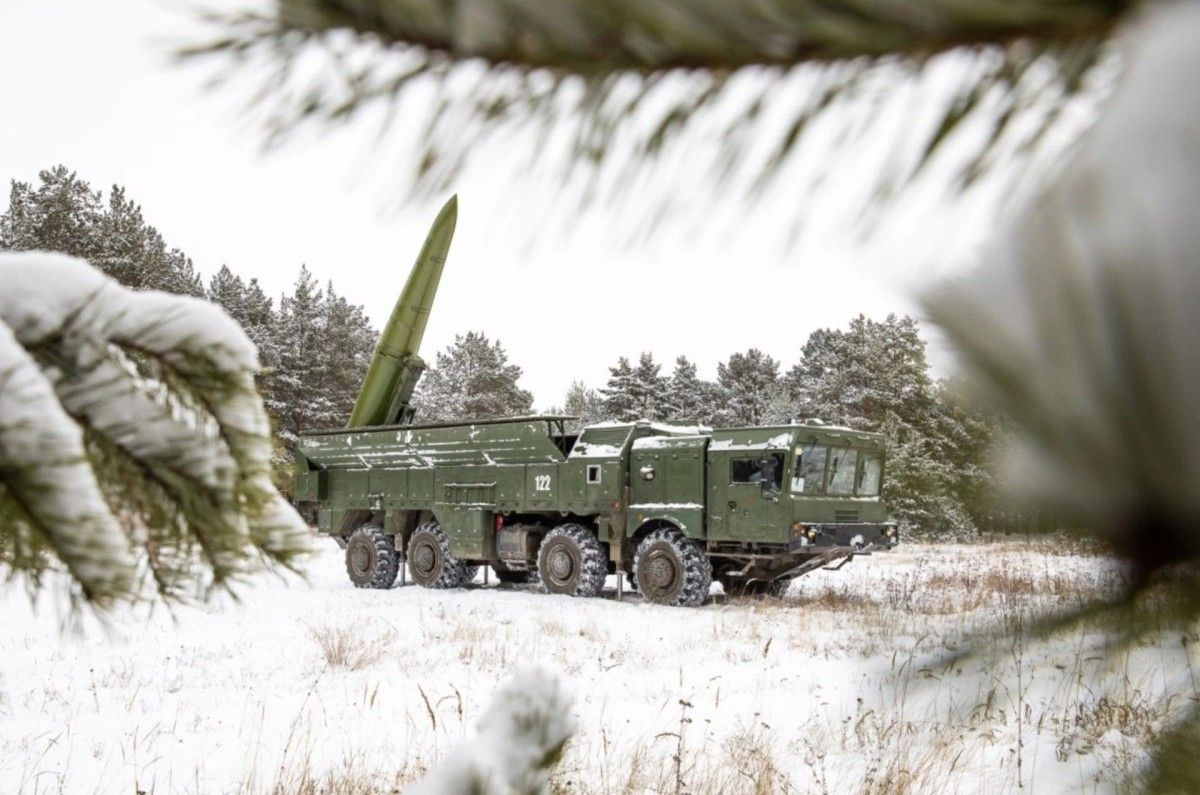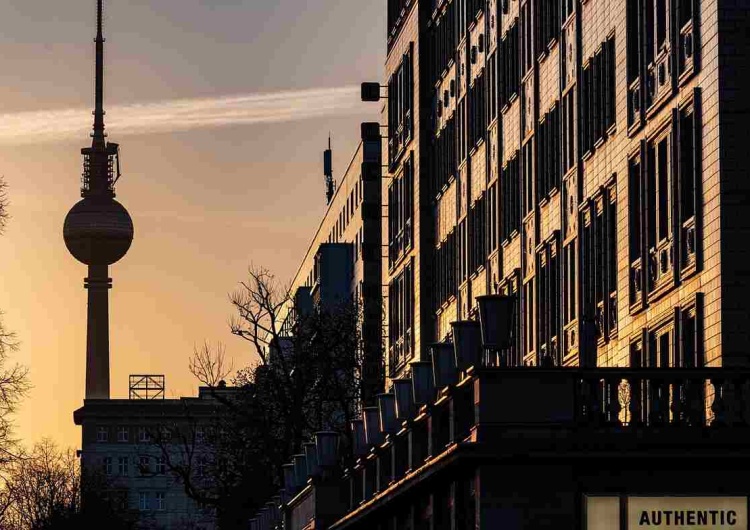We invitation you to a subjective overview of the regular economical review of information from Russia.
Today's episode and the full channel are co-financed by patrons, guardians and fans.
Details of support and link to Patronite can be found in the description of the movie and under the article on economics.pl
Shorts:
- The country's economy is losing billion rubles due to overweight people, said Russian Minister of Health. The harm caused by extra kilos is 6.8 trillion rubles, representing 4% of GDP. According to the ward, only 35.7% of patients have average body weight.
- The childless taxation should be 30-40 1000 rubles a month, said Alexey Zubets, manager of the Institute for Social and economical investigation at the Financial University of Russia government. In his opinion, even those who cannot have children should pay specified a tax. Zubets besides proposed taxing families with 1 child, reasoning that a average household should have 2 children.
- Steven Seagal said that if needed, he was ready to fight for the Russian Federation in the Northern Military District. The actor, as well as a peculiar typical of the Russian MFA for Russian-American humanitarian relations, added that ‘if needed’ he would give his life for his president.
- State pride is preparing a ban on quadrobing propaganda and penalties for quadrober parents, said Andrei Svintsov, Deputy president of the State Duma Commission on Information and Communication Policy. The penalties include penalties ranging from 1 to 5 1000 rubles for walking children on fours. Parents are besides facing punishment, including criminal proceedings, for causing injury if their kid attacks a passerby. More about fresh fashion in tomorrow's me Ruskia
- The Commissioner for the Rights of the kid in Tatarstan Irina Volynets proposed that quadrobbing, furry and terianism be considered LGBT propaganda. In his 162-page report, he claims that these movements affect youth from the LGBT community and in her opinion support the Armed Forces of Ukraine. Volyniec proposes to ban advertising of goods related to these movements, declaring them contrary to the policy of the Russian State.
- According to a survey by the State Higher School of Economics, surviving in megacitys specified as Moscow and St. Petersburg is much more likely to lead to neuropsychiatric disorders among residents than in tiny towns. Almost half of Moscow and residents of St. Petersburg have intellectual problems, but only 9.4% of them go to doctors. The most common origin of reporting to specialists is depression, which causes 18.8% of those suffering from this disorder to search help.
- In the territory of Svergovia, the court punished the fined fairy for failing to remove the spell. The girl performed respective rituals for 34,000 rubles, promising to free customers from negativity, but the results did not correspond to the customers. They filed a lawsuit, and the court ordered the fairy to pay 50,000 rubles of compensation and besides apologize to the victims.
- Burger King's client data was leaked to the network – 5.6 million lines with names, telephone numbers, email addresses, birth dates, dishes and order dates. The leak includes data from 2018.
- Unilever yet leaves Russia, selling his business to Arnest, a maker of Dichlorvos. Unilever production facilities in Yekaterinburg, Omsk, St. Petersburg and Tule will go to Arnesta. The amounts of the transaction were not disclosed, but previously the Russian Unilever business was valued at 35–40 billion rubles.
- State pride declared a critical shortage of cemeteries in Russia.
In Russia there is simply a severe shortage of cemeteries and crematoria, said Svetlana Razworotnieva, vice-president of the State Duma Committee on Construction, Housing and Municipal Services.
According to Deputy 1 Russia, the reason for this was the Law on Burial and ceremony Matters, adopted in 1996. Today, it is obsolete and does not meet current needs," Razvorotneva stressed.
“It is plainly written that burials can only be done by urban organizations. This means that private cemeteries, crematoria or another ritual objects cannot be created, capital and external investment cannot be attracted to this area,” explained the MP.
According to the statistic Razvorotneva is referred to, especially bad with crematoria. In full there are 27 facilities throughout the country. Thus, there is only 1 crematorium per 5 million citizens, while in Japan 1 in 79 000 people, in the US 1 in 159 000, and in the UK 1 in 242 000.
"The request for crematoria is very advanced today. In large cities – especially Moscow, Petersburg, Yekaterinburg – up to 70% of burials are held there. frequently people from the periphery are forced to travel to national centers to benefit from the cremation service. And that means extra money, extra stress, extra time in queues and so on," Razvorotneva noted.
In her opinion, changes in the law to enable the construction of ritual facilities in a public-private partnership, i.e. with commercial capital, could be a solution to the problem.
Mortality in Russia began to grow rapidly during the coronavirus pandemic and after the outbreak of the war in Ukraine. According to Rosstat, in the first half of 2024 the number of deaths increased year-on-year by 4%, to 921.1 thousand. On average, people died 1.5 times as many as they were born in the country, and in any regions the difference was 2-3 times. As a result, Russia lost another 272.5 000 people in six months as a consequence of a natural decline in population. This happened after the failure of 500,3 1000 in 2023, 599,6 1000 in 2022 and a full of 3.5 million over the last 8 years.
2. It's getting harder to plan regular expenses. Sanctions hit Russian exporters.
Russian exporters are increasingly struggling to regulate current spending due to the difficulties in making bank payments which have affected transactions in all Russia's "friendly" countries, including China, Turkey and the United arabian Emirates.
Due to frozen transactions which are either rejected by banks or delayed by up to a period or longer, it is increasingly hard for companies to plan regular expenses.
In total, the gross hanging abroad can be estimated at tens of billions of dollars. Thus only during the period January-July 2024. The Central Bank recorded an increase in “foreign assets” of business of $44 billion.
Although the majority of companies have so far managed to pay wages without interruption and comply with another financial commitments, the cash reserves in their accounts were close to the bottom.
Exporters, as 1 of the agency's interlocutors claims, must call global banks virtually daily, proving that payments do not violate sanctions.
But even in this ‘manual mode’ it is not possible to solve problems: transactions are suspended for weeks and can be rejected at any time.
In particular, Russian metallurgists faced problems.
MMC Norylsk Nickel, Russia's largest mining and metallurgy holding company, recorded an increase of US$300 million in its balance sheet in the first half of the year. According to reports, Rusal, the largest aluminium maker in the Russian Federation, lost the same amount.
The problems with payments that occurred at the beginning of winter, following the tightening of US sanctions, stay unresolved, and companies fear a full liquidity crisis, Bloomberg writes.
The situation is worsened by the advanced interest rate, it is increasingly hard to borrow money in Russia to cover cash gaps: the interest rate on loans in rubles remains above. 20% per year, and there is simply a chronic shortage of yuan in the market.
Distortions in gaining profits from abroad currencies already bear fruit and announce further problems for ruble, warns Dmitri Polawoj, investment manager at Astra AM.
In September, the exporters had already reduced their exchange currency sales by a third, to $8.3 billion, after which in the first days of October the dollar, euro and yuan rates updated the yearly maxima.
‘Initially, importers had bigger payment problems. The difficulties for exporters endanger to increase force on the exchange rate," Polawoj says.
Neither business nor authorities see a fast solution to the problem.
Both exporters and importers will most likely gotta look for ways to make payments outside Russia and leave any of the money abroad, even though the State requires them to be imported into the country, says Polawoj.
3. Russian airlines will accomplish evidence revenues after the strongest increase in airline ticket prices in 22 years
In 2024, Russian airlines could scope a evidence income of 1.8 trillion rubles for 13 years. This is due to the Analytical Rating Agency (ACRA) forecast
"In 2023, revenues from 2019 (1.4 trillion RUB) were achieved. According to our estimates, in 2024 this number could scope 1.8 trillion rubles. It's a historical maximum. This is affected by the emergence in profit rates," said Alexander Gushchin, elder manager of the ACRA corporate rating group.
According to him, the airline's EBITDA margin is approaching 20%, while "it usually oscillates between 5 and 10%. At the same time, the passenger traffic of Russian carriers has not yet returned to the pre-crisis level of 2019 erstwhile it amounted to 128.1 million passengers. The main limitation remains the deficiency of aircraft.
"Transports of 115-120 million passengers per year are an absolute limit, given the fleet we presently have. This is besides demonstrated by the dynamics of placing places, which is presently at the maximum level", says Guszczin.
Against this background, the volume of traffic on home Russian flights stopped growing.
According to the national Air Transport Agency in August, home transport (78% of full passenger traffic, or 9.49 million people) showed a decrease of 0.48% year-on-year, In the global segment, growth continues, but is besides limited due to the number of non-sanctioned fleets, states ACRA.
Maintenance costs incurred by the airline. The costs of airlines for specified work have increased. In addition, in general, we are seeing an increase in the cost of both fuel and ground services, as we note today," explained the head of the Ministry of Transport Roman Starowojt, explaining the sharp increase in air travel prices. He instructed the Russians to buy tickets in advance to make the price lower.
According to the Statistical Department, since the beginning of 2024 ticket prices have increased 28.4%
4. A severe deficiency of recruits. Regions increase military contracts
The Bielgorod authorities tripled the one-off regional payment for the fresh contract soldiers of the Ministry of Defence of the Russian Federation – up to 2.6 million rubles.
Previously evidence shoots for recruits belonged to Chanty-Mansian Autonomous territory and Moscow – 2.35 million and 1.9 million rubles respectively.
On 7 October, the politician informed of the approval of lump sums for the conclusion of a military contract of 2.6 million rubles Belarus Viaczesław Gładkow.
According to him, non-resident citizens can besides receive money if they enter into contracts in regional military registration and collection offices and before the end of the year. The erstwhile increase in payment (up to 800,000 rubles) was carried out by the Belgorod authorities in August.
Behind Belgorod ranks Chanty-Mansian Autonomous District in terms of financial support. Since 4 October, the authorities have increased regional payments to recruits by 900 000 rubles, and in full recruits can apply for a flat fee of 2.35 million rubles. shortly after, authorities St. Petersburg They besides increased financial support for contract soldiers – they began receiving 1.7 million rubles.
In September, “he pulled up” to them Jamaican-German Autonomous District, where regional authorities began to transfer 1.9 million rubles (previously 1.1 million).
So in Chelabin region until July 2024 contract soldiers were transferred from the region to 305 1000 rubles, and from 1 August to 705,000 rubles
W Buried By August 2024, regional payments amounted to 200,000 rubles, from 7 August to 500,000 rubles. On Chervil As of 1 August, the authorities increased the regional payment from 400 000 to 500 000 rubles, and the municipality of Anadyr doubled it from 150 000 to 300 000 rubles.
W Samar Region duties besides increased in August: the contract soldier can number on regional 450 1000 rubles, municipal 200 1000 and another 155 1000 rubles from regional enterprises (previously – a full of 650 1000 rubles, without national subsidies).
In the territory of Stawropola As of 7 August, a one-off aid was established for contract soldiers of 1.5 million rubles (previously – 200 000 rubles). A akin amount from August shall be paid to recruits from the budget
Cabardino-Balcaria (previously – 805,000 rubles).
On the territory of Krasnodar As of 10 August, 1.2 million rubles were paid from the federation entity (previously 1.1 million) and another 200,000 to 400,000 rubles were donated to the municipalities (maximum to recruits from Noworosyńska).
W Tatarstan payments have been increased from 1.05 million to 1.3 million rubles since 2 September; At the same time, contract soldiers receive another 300 1000 rubles from the municipality.
W Karachio-Czerkiesia As of 12 August, regional authorities began paying 1.6 million rubles to recruits (instead of 1.3 million).
In the region of Jarosław, the amount the corresponding payments in the last 3 months have been revised twice: in August (from 310 000 to 510 000 rubles) and in September (to 700 000 rubles). W The Kurhan region increased 3 times: at the beginning (from 120,000 to 400,000 rubles), in mid-August (650,000 rubles) and in October (1.5 million rubles). The situation is akin in Sverovsk Oblast: Here regional and municipal charges were raised in August (from 400,000 to 500 000 rubles), early (1.1 million rubles) and late September (1.6 million rubles). In many regions they followed Vladimir Putin's decree, which recommended raising regional payments to at least 400,000 rubles, e.g.. in the Kursk, Brian, Tambowski, uljanowski and Orlovski circuits, in the territory of Altaj, the republics of Altaj and Tywa.
It should be noted that on 31 July Russian president Vladimir Putin signed a decree to increase national lump sums for contract soldiers – from 195 1000 to 400,000 rubles.
In addition to financial incentives, local authorities besides usage another forms of incentives.
In the Samarian circuit, he promises contract soldiers get free prescription medication. In Leningrad, Tambów, Orle, Kursk, Irkutsk and respective another regions – free cut.
In Krasnojarska territory, politician Mikhail Kotiukov signed a decree in September that household members of participants in a peculiar military operation have the right to an extraordinary gathering with a medical specialist with a narrow profile.
In the Kirovski, Samarski, Rostov, Kursk, Komi republic, Permsk territory and any another circuits, contract soldiers are exempt from paying transport tax.

5. Russian authorities planned payments in the budget for over 2 million war veterans in Ukraine.
Russian authorities have prepared for a sharp increase in the number of Russians who will go through the war in Ukraine. In 2027, spending on monthly salaries for war veterans will increase from the present 120 billion to 267 billion rubles. This follows from the explanatory note to the draft budget, to which the telegram channel "We Can Explain" drew attention.
Currently veterans receive 4188 rubles. a month, which is indexed annually by the inflation rate. This summertime the State Duma automated receiving veteran position for all participants in the war with Ukraine.
According to the calculation of ‘We Can Explanations’, the budget for 2024 provides for payments for 540 1000 SVO veterans. Initially, the Ministry of Finance prepared that within a year the veteran position would receive no more than 64,000 people, and the full number of participants in the war "on benefits" would not exceed 190 000.
At the same time, pay is besides due to those who stay on the front and to the demobilized wounded. The number of the erstwhile in December 2023 was 617 000, according to Russia's president Vladimir Putin, and the sources of the "The Wall Street Journal" in the Western interview estimated the second to be 400,000. Thus, even 1 million people can be paid to veterans.
However, the draft budget and the calculation of We Can Explanations shows that in 2025 the recipients of payments should be 1 million more than in 2024, with a full of 1.5 million people. By 2027, 2.6 million people should go to war. This number may be lower if the government plans to radically increase veteran benefits, but this has not yet been announced.
At the same time, the draft budget shows that in the next 3 years the Russian Ministry of Defence plans to get at least 225 000 fresh volunteers for contract service, wrote “Important stories”. 90 billion rubles were allocated for this purpose. At the same time, in the first half of that year only 166.2,000 people signed a contract with the Ministry of Defence. Russian authorities will besides send about 24,000 defendants to war.
At the same time, sources in the Kremlin informed Bloomberg that about 30,000 people a period were needed by the Russian army to rebuild combat losses. Due to the fact that the recruitment of contract soldiers is not keeping up with the pace of the losses, the authorities may consider a fresh wave of mobilization before the end of the year – the agency's interviewers argued.
6. You didn't get out of Russia on time, now you cry and pay.
Source: RBC
The authorities agreed to further increase the contribution to the budget from the sale of Russian assets to abroad companies leaving the Russian Federation and to increase the minimum discount for transactions.
The amount of mandatory deductions to the State Treasury will emergence from the current 15% to 35% of the marketplace value of assets.
25 % of the value of the transaction must be paid to the budget within the first period of the date of the transaction, 5 % per year, another 5 % in 2 years,
The amount of the mandatory discount in relation to the marketplace value of the asset will increase from 50% to 60%.
The authorities are besides planning to introduce a fresh rule: transactions worth more than 50 billion rubles will should be approved by Russian president Vladimir Putin.
The tightening of abroad departure conditions this week was approved by the government's abroad investment control sub-committee.
The alleged "exit tax" for foreigners was initially 10%, but was raised to 15% of the value of the assets sold last year.
Revenue to the State Treasury from the sale of Russian assets to abroad companies leaving the Russian Federation amounted to nearly 140 billion rubles at the end of August.
In 2023 93 acquisitions of assets of abroad companies were made in Russia. Their amount exceeded $11 billion and in the first half of 2024 – 34 specified transactions worth $1.9 billion.

